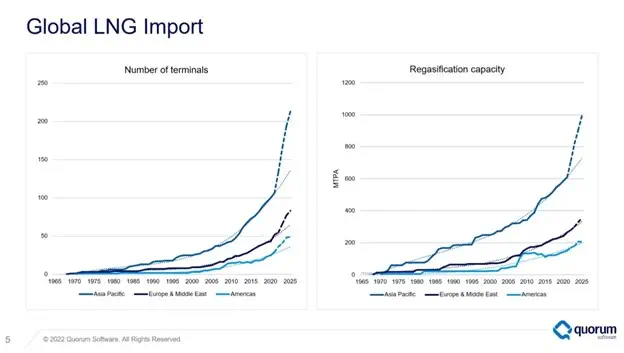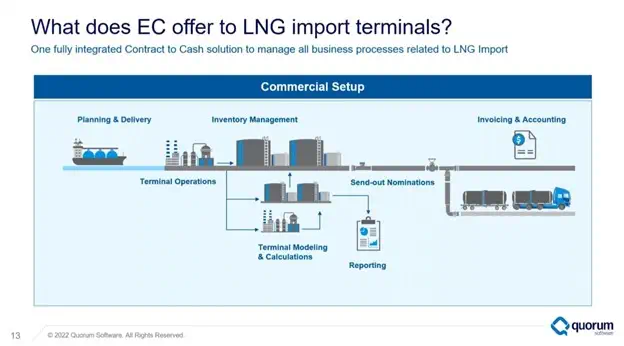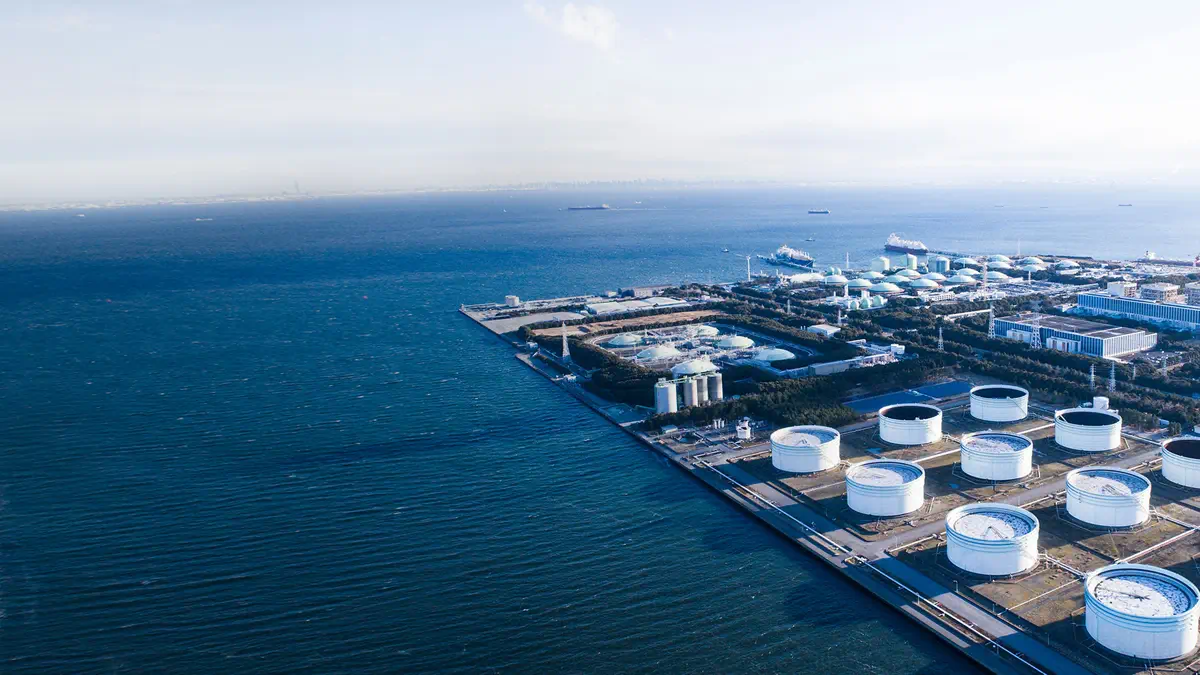The energy transition has pressured stakeholders and the government to invest in more sustainable operations. Consequently, liquified natural gas (LNG) projects are becoming more popular in the Asia-Pacific space. Quorum Software Managers, Willem‑Wouter Rutgers and Magnus Ulseth discuss how Energy Components can increase business value for LNG import terminals in the Asia-Pacific space.
Asia-Pacific LNG Import Terminals and the Energy Transition: a Snapshot
To start, the number of LNG terminals and regasification capacity has steadily increased over the last 50 years, with a very sharp increase in just the last decade. Growth is projected to boom in the next 5 years as well, with the vast majority of the growth taking place in the Asia-Pacific area.

Furthermore, there has been a push towards third-party access (TPA) of terminals, in an effort to improve infrastructure utilization. Therefore, LNG terminals need to be organized for collaborative workflows. This is more true for some countries such as Singapore and Thailand compared to other such as Japan where TPAs are implemented, but not executed to their full capacity for various reasons.
Key Functionalities of Energy Components
Energy Components is a comprehensive solution for oil & gas organizations supporting multiple functions including hydrocarbon management, optimization support, asset analysis, and more. For LNG, Energy Components offers some key functionalities that support the supply chain from reservoir to customer. These include:
- Upstream Oil & Gas, which supports raw gas production
- Terminal operator (export) support for liquefication and storage
- Shipment support for fleets and vessel operators
- LNG storage & regasification terminal operator (import) support
- Distribution support for transmission system operators
Energy Components Delivers Value for Asia-Pacific Import Terminals
In a nutshell, Energy Components is a fully integrated Contract to Cash solution to manage all business processes related to LNG Import. This includes processes such as planning, terminal operations, inventory management, reporting, and accounting to name a few.

Terminal operators have access to contract management solutions which allows them to manage:
- Terminal use agreements
- Inter-company agreements
- SPAs for purchase of LNGs
For terminal operations, there are features to help with:
- Cargo information
- Surveyor report data
- Cargo analysis
- Time sheet & delays
- Cargo documents
- Demurrage
Energy Components even offers support for the energy transition with product-agnostic configuration that allows for management of other fuels and commodities, making Energy Components renewable-ready.
The solution offers a single integrated system capable of handling all activities with the highest efficiency, auditability, and data and security compliance against the lowest cost of ownership.
For a more detailed walk-through on Asia-Pacific LNG Import Terminals, watch the full webinar here.

 Previous Page
Previous Page